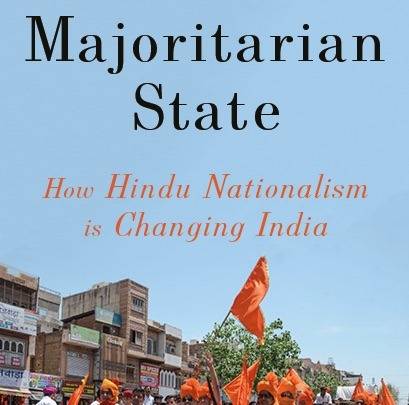On a gentle mid-September Mediterranean night, around 40 people gather in a small garden of a private house in the city’s centre, holding soft drinks and nibbles. The setting is quintessential middle-class Tel Aviv. The host is David Broza, one of Israel’s leading folk-rock singers. Many people seem to know each other already and everyone chats smoothly. But when more formal introductions begin, some odd characters stand out: Wa’el Salame is a Palestinian from Anata, in the West Bank, who spent four years in an Israeli prison for planning the car bombing of the police headquarters. Osama Karsh is from Rammallah: his was a three-year prison stint. He has brought his five-year-old daughter with him, for her it is the first time to meet Israelis not as soldiers at a checkpoint. Mohamed al-Sayyad was one of the leaders of the first Intifada in east Jerusalem, and Bassam Aramin, from Yatta, spent seven years in Israeli jails. A couple of the Israelis introduce themselves as former commanders in the Israeli army. When the interpreter is introduced with the qualification that “he’s done absolutely nothing”, a wave of laughter eases the tension in the audience.
This is no ordinary party. In fact, this is one of the first public meetings of a new Israeli–Palestinian group called Combatants for Peace. It consists of several dozen former Israeli soldiers and several dozen former Palestinian militants. They all spent years, some a lifetime, trying to kill each other. But now they have agreed to renounce violence and work together for peace. Their declaration of principles is simple: “We no longer believe that it is possible to resolve the conflict through violent means. We call for the establishment of a Palestinian state alongside Israel. The Israeli Palestinian cycle of violence will not end unless we act together to end the occupation and to stop all forms of violence. We will act in non-violent ways and will call for non-violence in both societies.” In itself the statement is not groundbreaking; after all, peace groups have been active in the region for decades, and they make similar calls. The difference here is who is making the call. These are not pacifist peaceniks but battle-hardened fighters. When these people preach peace, the message resonates.
The genesis of this initiative is in the Israeli ‘refuseniks’: reserve soldiers who publicly announced that they refuse to serve in the Palestinian Occupied Territories. In Israel, in addition to the three-year compulsory regular service in the armed forces (normally between the ages of 18 and 21), almost all males are part of the reserve forces and serve in their units a few weeks a year, normally till their early 40s. Whereas the younger recruits are easily indoctrinated, among some of the reserve soldiers – who become students, professionals and parents – political awareness sometimes grows. There has always been a handful that broke rank and refused to serve in the territories. Yet in a culture like Israel’s, where the military is venerated as the people’s army, this is a tough path and cases have been isolated.
Until, in 2001, a year into the second Intifada, a more coordinated initiative emerged. Calling themselves ‘courage to refuse’, this was a group of hundreds of soldiers and officers, with hitherto perfect combat records, who denounced Israel’s policies in the West Bank and Gaza – the fatal shootings of civilians, the house demolitions and prolonged curfews - and announced they will not serve there. Dozens went to military prisons for short periods, and there was a flurry of headlines and public discussion.
But the storm calmed quickly. Suicide bombings by Palestinians undermined their popular support and when, following a particularly vicious wave of such attacks in April 2002, the army went in to ‘reoccupy’ the West Bank, overall the recruitment of reserve soldiers was not affected.
Then an inspired idea, as Zohar Shapira, one of the leaders of Combatants for Peace, describes. “After doing this passive act – saying ‘no’ – we started discussions about what we should do, how to say ‘yes’. A friend suggested we meet identical people, identical from their personal histories, only from the other side – people that like me fought for a goal that they believed in, paid a price, sat in jail.” Intermediaries brought the Israeli refuseniks to meet with Palestinian activists, all former militants who were willing, like their Israeli counterparts, to denounce violence. They met secretly, without outsiders or the media, for over a year, and are now starting to hold small public meetings like this one, for which the sympathetic Broza volunteered his house.
Shapira introduces himself as a former soldier and commander in an Israeli “elite unit”. It is a modesty reminiscent of Yale graduates who say they went to “a college in Connecticut”. Zohar was in Sayeret Matckal, Israel’s most legendary army unit: famous for rescuing the Israeli hostages at Entebbe airport in 1976, as well as other high profile operations. For years its existence was officially a secret, and recruitment is often through recommendations from former soldiers. This is the elite of the elite of Israeli military society; former prime ministers Ehud Barak and Benjamin Netanyahu are veterans. That refusal has reached even some in this unit was a big shock. Ariel Sharon’s closest adviser admitted in an interview that Sharon was moved by this act, one of the triggers that led him to draft the disengagement plan.
Shapira describes how, after years of service, his moment of transformation took place during an operation four years ago, when he broke into a family house in Nablus: “An insight hit me, which paralysed me, froze me from the inside. From the outside I continued to do what I was doing, protecting some, harming others. But something struck me – it can’t be that what I’m doing now will bring anything good. Not for Israelis and definitely not for Palestinians, the old and the sick I pushed that night. After a few months I decided to refuse such assignments.”
His colleague Chen Alon, a former company commander in the armoured corps, defines himself as having a ‘PhD in occupation’, achieved through years of beating Palestinians, enforcing curfews and arresting children. “I grew up in a patriotic Zionist home,” he says. “We all believed there was no partner for peace.” In years of service he found himself “on a slippery slope of actions that became simply war crimes”.
His own moment of conversion took place when his unit was ordered to demolish a house in a village near Bethlehem, since its Palestinian residents extended it without a permit from the Israeli authorities. The demolition turned into a battle: “we shot shells into a house, they shot back with automatic rifles. An injured soldier, six injured Palestinians, real madness. That was the night that broke me. That’s when I understood I’m not taking part in this again.”
For the Palestinians, recruitment started early. Bassam tells how he started when he was 13, hanging the then illegal Palestinian flag outside his school. “If any of you were soldiers then,” he said scanning the Israeli audience, “you’ll remember shooting at the flags in the school in Yatta.” Mohamed started taking part in violent confrontations with the army when he was 15, rising to be one of the leaders of the first Intifada in east Jerusalem. “We were waiting for every Israeli target, car or person, and were so happy when we injured or killed someone, watching the soldiers being buried in the Mount Olive cemetery,” he recalls.
Mohamed describes how his view changed: “After years of struggle and blood, I understood that Israel cannot be destroyed, and that the Israelis cannot destroy me.” He points out how becoming a father changed him: “I started thinking what would happen to my children. I know what it is to be in jail, to be under curfew, all these things, I don’t want the children to go through that. I reached a point when I understood we have to live here as equals and that’s the only way.”
Asked whether they have any chance of affecting the Palestinian public, Bassam points to their status: “We get respect in the Palestinian street, since we paid a price in prisons.”
The same may be true for the Israeli participants. Go to an average Israeli peace vigil and you’ll see mostly women, teenagers and old people, with the passing crowds accusing them of being cowards or traitors. But these charges cannot be thrown so easily at the members of Combatants for Peace, who earned their status doing their patriotic service to the nation, who speak based on their experience as soldiers.
Inevitably, Combatants for Peace have their critics. One veteran Israeli pacifist activist I spoke to felt that “by claiming a special role for combatants, they just reinforce the militaristic nature of Israeli society.” Others have pointed to the distinctly masculine tone of the organisation; one woman volunteer asked “What can be my role here apart from pouring tea?” While the group recognise some of these shortcomings, they emphasise the tactical appeal of their identity as warriors. Alik Alkhanan, a young Israeli, told the audience, “None of you would have come here if we were mathematicians, same thing regarding the Palestinians. I was a soldier, not a very happy one and not very good – they would have sacked me if it was possible to sack a soldier – but when I introduce myself as a former combatant people listen to me.”
A prominent person in the audience was Gilad Sher, who coordinated the Israeli negotiation team during the Camp David summit. While congratulating the group, he – like many others – has charged them with that familiar grievance against peace groups: that they are “too naïve”. Sher argued that the group oversimplify by calling only for Israeli withdrawal from the Occupied Territories; there are many other issues to resolve apart from the territorial, he argued, such as control of water resources, the fate of holy places in Jerusalem or security arrangements.
This critique is brushed aside by the group’s members. “We are not academics, we don’t draft resolutions,” Mohamed says, and Bassam promises that “if we go back to 1967 borders I promise you, 1,000 per cent, they’ll be no more wars.”
At the group’s first meeting in the West Bank in early 2005 there was a lot of fear. The Israelis were for the first time venturing into the Occupied Territory without their guns; the Palestinians couldn’t be totally sure this was not an Israeli trap. But this has changed. “After a lot of meetings,” Zohar Shapira says, “we saw the human beyond. I didn’t see the cliché I get from the newspapers or from my commanders, and they don’t see the horrible clichés that they meet in checkpoints or that invade their houses. Friendships have started … a human contact.” Avichai, another member of the group, told me how for him the important thing in the meetings was that they individualised and humanised the political questions: “it’s no longer ‘the Palestinian problem’, it is individual persons you talk to.” And if militant activists who were at the extreme end of violence can go through this process, Bassam says, so can everybody else.
Ron Dudai is a research fellow at the Hotung Programme in Law, Human Rights and Peace-Building in the Middle East, SOAS

